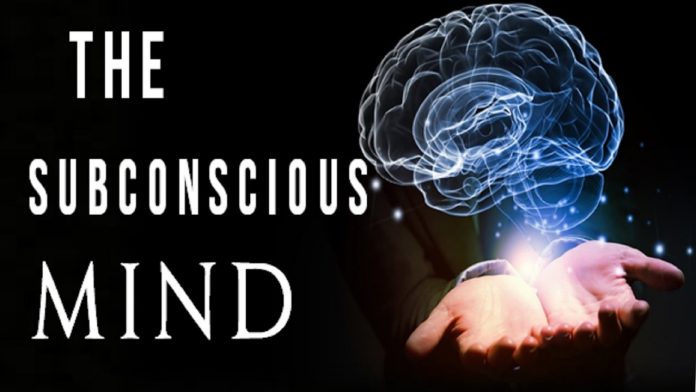
Many people are beginning to ask the question can you rely on your subconscious to make a success of your life, or is it just another “gut feeling?” The answer to this question will vary from one individual to the next. What is clear though is that your subconscious has the power to shape your reality and by using it properly you can achieve anything that you desire.
Many dreams are formed in your subconscious mind and unfortunately, not everyone knows how to tap into this power. Some people believe that their subconscious directs their dreams. This is not entirely true, however, you can use your subconscious to develop certain behaviours and patterns in your life that are beneficial to you. Your subconscious mind can be accessed through meditation and hypnosis, which is widely considered the most effective way to use your subconscious to create change in your life. You may not realize it but your subconscious has the power to help you learn how to live better and achieve more in life.
Voices In The Mind
We all have conversations with ourselves. Often these conversations happen on a daily basis and they have the potential to create an internal struggle between the different “voices” we often hear when these conversations occur. These conversations are known as self-talk, and they are as the name suggests. Our subconscious is “talking” to us and often answering itself at the same time. How much can we rely on our subconscious and our self-talk? The voices we hear and the decisions that arise from our self-talk can potentially help us make important decisions, so the answer to the question of its reliability is an important one for most of us.
Self-talk is usually activated by an event that happens to us. It may be something we see, hear or experience and as we think about the situation at a conscious level; our subconscious also begins to respond. As it processes the event it tries to make sense of it. Many external and internal influences can affect what happens next. We may, for example, remind ourselves we have an important exam the next day and our subconscious reminds us that we need to study for it. This may be considered positive self-talk and for many decisions, this type of subconscious activity can be life-saving.
However, on many occasions, situations and events that may have been considered positive may produce negative reactions in our subconscious discussions with ourselves. Thoughts of that exam, instead of driving us to action and preparation may leave us feeling a sense of despair, thinking we will never pass this exam. We may make a decision based on our “instincts” which are subconscious decisions that cause us to “trust” our instincts and act on them.
Facts vs Perception
Perception can be altered by how we are feeling, or what stresses we are under at the time and therefore the more stressed we are, the less reliable our self-talk is. On these occasions, self-talk can create negative thoughts in our mind as we dwell not on the facts, but on our perception of those facts and these can be influenced by many factors acting as filters and giving us false perceptions.
Identifying which self-talk is based on facts and which on our perception of facts will help us know whether to trust our subconscious “gut feelings” on things that can happen to us. You need to learn how to tap into the power of your subconscious and permit yourself to trust your inner feelings. You need to learn how to let those feelings guide you instead of being guided by your conscious mind.
Can you rely on your subconscious to help you build your success in life? This is a powerful question and one that only you can answer. To learn how to trust your subconscious you must first take action.
Manipulating Your Subconscious into Developing Good Habits
Many of the actions and decisions we make in life happen at a subconscious level. Our subconscious is the feeling, thinking part of us that drives our perceptions, and often our decision-making processes. Often thought of as “instinct” or “gut feeling” we often rely on our subconscious and when we are feeling positive and happy about our lives, we are usually confident we are making the right decisions. On other occasions, however, our perceptions can be clouded by stress and other such factors and dwelling on these things can lead to inappropriate reactions as we focus on the perceptions and not the facts of the situation.
Is it possible to train and manipulate your subconscious to develop good habits of focusing on the facts and not being influenced by perceptions and feelings? It is important to remember when facing negative self-talk that you may not be able to change the situation you are facing but you can change how you feel about it. The situation is not an option, but the way you react and respond to the consequences of that situation is a choice. We need to refocus our thinking on our perceptions about the causes of our worry and focus instead on the facts or the cause of the worry.
Confronting Your Self-Talk
Starting by asking yourself reality-based questions is essential to reversing the process of self-talk. It often helps, if you can write down the answers to these questions.
- Firstly, ask yourself about the facts of the situation and as you write them down try not to reflect on any emotions, but only facts.
- Secondly, ask yourself if there are alternative causes for a situation or event, rather than just the one your subconscious is suggesting. Challenge your perception with evidence from other sources that may prove your perception as incorrect.
- Put perspective back into the situation by reflecting on the facts and alternative causes.
- Challenge the perception you have had and create an alternative perception.
As you learn to challenge the way your subconscious relates to situations, you can manipulate it to start thinking positively. The goal is to challenge your subconscious reasoning before it thinks and responds negatively to situations.




